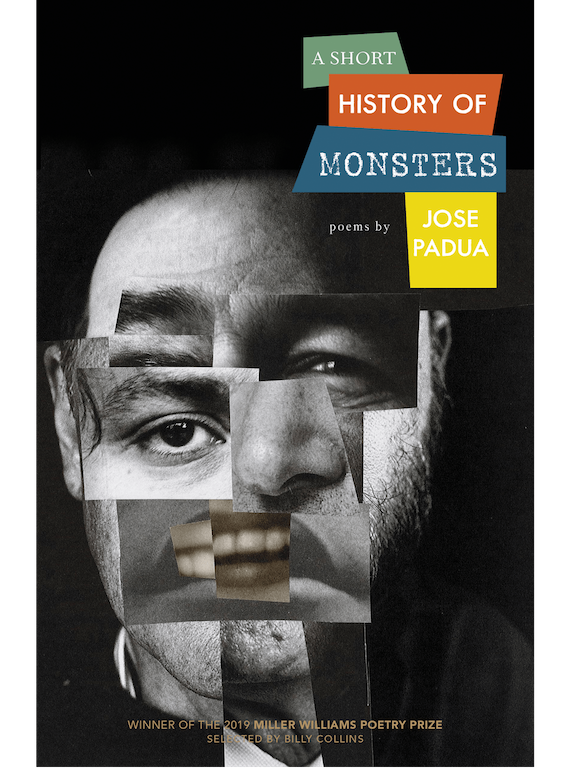Original Love
Original love was a sentimental love song which whenplayed backwards said "Satan is my friend forever,motherfucker." The big bang was when Adam got Evepregnant with Cain or Abel or whichever of those goodor bad young men was their first son. As for me, the firstsong I ever sang didn't get me a girlfriend, didn't makemy best friend in high school's girlfriend leave my bestfriend, who was kind of a dick. My first woman had nothingto do with the art of song, and even less involvement withanything one might call love. There was work and money,long evenings spent in bars, and train rides like morningheadaches, vacations at the beach, cross country trips on thebus or on the plane and people who were either impressedor appalled that I had a job, a car, and a foreign sounding name.After that came no work, and no money, occasional run inswith the great but more often with the not-so-great, andphone calls from bill collectors who threatened to sue me,and death threats from people who were once my friends.True love came later when I had nothing and knew nothing.It took me by surprise at a time when all I expected wasa steady downpour of noise and scorn and rain. And thoughthe great flood may be yet to come, and the big bang a myththat never happened, I remember that in the beginning I hada dream where bees hovered around me as if I were a clear jarof raw brown honey, flew about my arms and legs and faceas I stood on a high wire in the open air above the street withall its cars and buses and people with their skyward gazesand breathless whispers. And I remember one nearly perfectevening when my spirit turned around and around like a planetspinning and circling around all the days and years whichI thought would never come, the original love that keptthe bees from stinging and the jar shut tight. And I rememberit was original love that brought me to this moment, moved mefrom school and work and money to here, to this tightropeon which I walk, knowing that whether or not I make it tothe other side I will fall—deeply and completely, witha gesture of tremendous force and grace, and like a manwho, despite his many failings, remains great for all time.
Feature Date
- November 23, 2019
Series
Selected By
Share This Poem
Print This Poem
Copyright © 2019 by Jose Padua
All rights reserved.
Reproduced by Poetry Daily with permission.

Maggie Padua
Jose Padua was born in Washington, DC and is a veteran of New York’s spoken word literary scene. His first book, A Short History of Monsters, was chosen by Billy Collins as the winner of the 2019 Miller Williams Poetry Prize and is now out from the University of Arkansas Press. His poetry, non-fiction, and fiction have appeared in numerous journals and magazines. He writes the blog Shenandoah Breakdown (shenandoahbreakdown.wordpress.com) and is a regular contributor to Vox Populi (voxpopulisphere.com). He lives in Washington DC with his wife, the poet Heather L. Davis, and their two children.

Fayetteville, Arkansas
University of Arkansas
Winner, 2019 Miller Williams Poetry Prize
Drawing on the spirit of New York City in decades past, A Short History of Monsters presents the sins and obsessions of a poet nimble in beat and slam traditions. In his first full-length collection, Jose Padua wrestles with an American dream interrupted by failure, excess, and other nightmares. Often brash and unruly, these poems range from recollections of lost, drunken days to unadorned manifestations of hope. Throughout, the speaker redefines his relationship to pop culture, praising it, skewering it, and mourning it by turns.
The poems that make up A Short History of Monsters tend toward both dark humor and epiphany, diving deeply into their own despair and rising up again with existential absurdity. This is a poetry that gets down into the grit and grime of the real world, digging out a space to experience being alive as miraculous in and of itself.
“Padua is a very wry poet who, in his first book, presents stinging and riotous poems, as in the two-stanza ‘Barbie’: ‘I am Barbie / I live in your dollhouse / You change my clothes every day. / If I could get out / of here I would / kill you all.’ These are works that sharpen the mind on the micro, as opposed to the macro of our human experience. This debut collection was selected as winner of the 2019 Miller Williams Poetry Prize by Billy Collins, who invokes in his succinct preface the specter of Charles Bukowski, and indeed, the infamous barfly poet is echoed here, yet Padua’s own dry wit and driving purpose cut through. These poems evoke not bold headlines but rather a quiet righteousness or realization. In 'On These Days Driving': ‘Perfection is the moment when the worst / is behind you and the best slowly reveals itself / like a song from decades ago that only now / becomes a hit.’
— Raúl Niño, Booklist, March 2019
“Jose Padua’s poems sneak up on you, put a hood over your face, and drug you with their cool smooth voice. When you wake up, you’re dressed in rags, and your only defense is your sense of absurdity.”
—Michael Simms, Vox Populi
Poetry Daily Depends on You
With your support, we make reading the best contemporary poetry a treasured daily experience. Consider a contribution today.



